February 7, 2022 •
Oakland Raises Political Contribution Limits

Oakland, California - by James BeBop
Oakland has raised political contribution and expenditure limits. Candidates who adopt the voluntary expenditure ceiling may accept contributions up to $900 from individuals and businesses, and up to $1,800 from qualified board-based political committees per election cycle. Candidates who do […]
Oakland has raised political contribution and expenditure limits.
Candidates who adopt the voluntary expenditure ceiling may accept contributions up to $900 from individuals and businesses, and up to $1,800 from qualified board-based political committees per election cycle.
Candidates who do not adopt the expenditure ceiling may accept contributions up to $200 from individuals and businesses, and up to $400 from board-based political committees.
May 4, 2020 •
No Limits on Campaign Contributions in Oregon
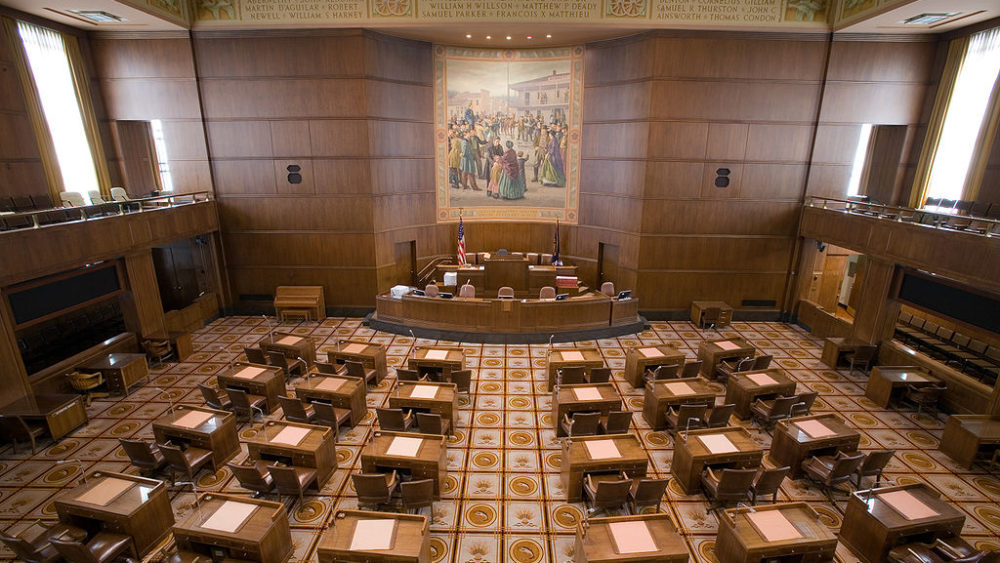
Oregon Senate Chamber - photo by Cacophony
Oregon political candidates in legislative and statewide races can continue to accept contributions vastly exceeding the caps voters approved in 2006. Secretary of State Bev Clarno announced on Friday she would not allow the 2006 voter approved initiative. The initiative […]
Oregon political candidates in legislative and statewide races can continue to accept contributions vastly exceeding the caps voters approved in 2006.
Secretary of State Bev Clarno announced on Friday she would not allow the 2006 voter approved initiative.
The initiative placed a $1,000 limit on donations to statewide candidates and a $100 limit on contributions to legislative candidates.
Clarno’s office released a statement communicating Measure 47 from 2006 was not made operative by the Oregon Supreme Court decision.
Therefore, there is no change in current state election laws.
Clarno’s decision was based off of a verbal opinion from the Department of Justice.
Also, Multnomah County Circuit Judge Thomas Ryan ruled Portland Mayor Ted Wheeler’s campaign did not need to limit spending.
The ruling came after a suit filed by Wheeler’s main opponent questioning his use of contributions.
Portland mayoral candidate Sarah Iannarone had joined several campaign finance activists in a lawsuit against Wheeler’s campaign.
The lawsuit contends the mayor must repay all the donations he’s received surpassing the $500 campaign finance limit approved by Portland voters in 2018 but never enforced due to legal challenges.
After last week’s Supreme Court ruling, the city auditor’s office will begin enforcing Portland’s campaign finance measure starting today.
However, candidates won’t be retroactively punished for taking large donations.
Portland Attorney Dan Meek said he would ask the state Supreme Court to reconsider its April decision to make it clear Measure 47 should go into effect immediately.
In November, voters will decide on a proposed state constitutional amendment making it clear the state could adopt any limits allowed under the U.S. Constitution.
January 20, 2020 •
Missouri Introduces Joint Resolution to Ban Lobbyist Gifts
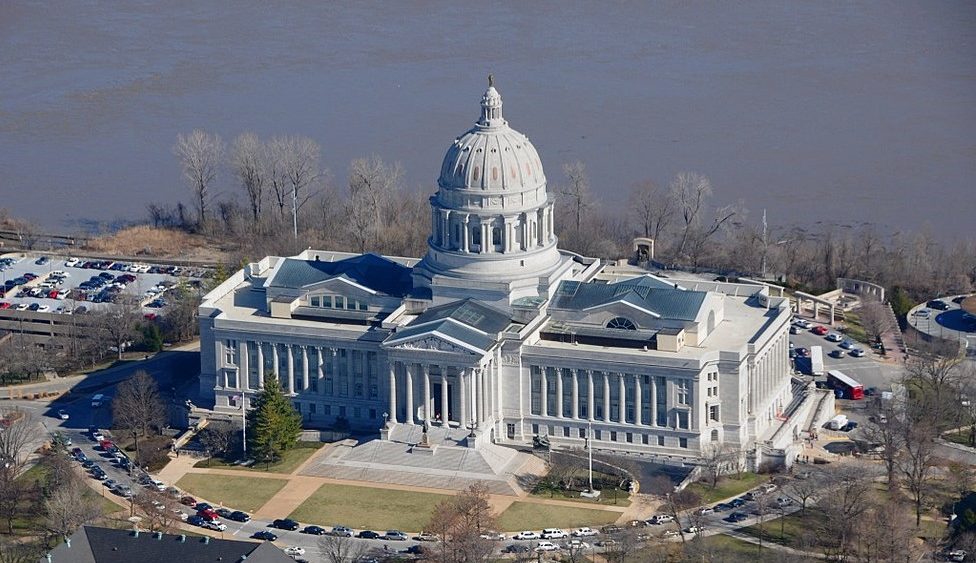
Missouri Capitol Building
Sen. Dan Hegeman, a Republican from Cosby, is sponsoring a Joint Resolution for a constitutional amendment which would ban all gifts from lobbyists or lobbyist principals. Additionally, the bill will reduce contributions made to or accepted by any candidate or […]
Sen. Dan Hegeman, a Republican from Cosby, is sponsoring a Joint Resolution for a constitutional amendment which would ban all gifts from lobbyists or lobbyist principals.
Additionally, the bill will reduce contributions made to or accepted by any candidate or committee from $2,500 to $2,000.
The proposed constitutional amendment also repeals the redistricting system approved by voters in 2018 through Amendment 1.
If passed, the proposed amendment would be voted on by the state on November 3, or at a special election to be called by the governor for that purpose.
February 6, 2019 •
PA Senate Introduces Bills on Political Contributions and Gift Disclosure
The state Senate introduced two bills amending political contributions and gift disclosure. Senate Bill 215 limits political contributions from contractors to a candidate to $2,400 per election and contributions to a business entity or political action committee supporting a candidate […]
 The state Senate introduced two bills amending political contributions and gift disclosure.
The state Senate introduced two bills amending political contributions and gift disclosure.
Senate Bill 215 limits political contributions from contractors to a candidate to $2,400 per election and contributions to a business entity or political action committee supporting a candidate to $5,000 per election.
In addition, the state Senate also introduced Senate Bill 216 requiring public officials to disclose gifts from a friend with a value of $250 or more.
If passed, both bills would go into effect within 60 days.
September 17, 2018 •
California Legislature Sends “Social Media DISCLOSE Act” to Governor
On September 12, California Gov. Jerry Brown was presented with a bill concerning political advertising in social media. Assembly Bill 2188, the “Social Media DISCLOSE Act”, requires disclosure for advertisements made “via a form of electronic media that allows users […]
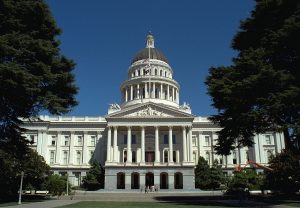 On September 12, California Gov. Jerry Brown was presented with a bill concerning political advertising in social media.
On September 12, California Gov. Jerry Brown was presented with a bill concerning political advertising in social media.
Assembly Bill 2188, the “Social Media DISCLOSE Act”, requires disclosure for advertisements made “via a form of electronic media that allows users to engage in discourse and post content, or any other type of social media”, and is paid for by a political party or a candidate-controlled committee. The disclosure obligations fall on both the registered political parties and committees and on the “online platforms.”
The online platform must maintain and make available for online public inspection a digital copy of a political advertisement, the number of impressions generated from the ad, information regarding the total amount spent on the advertisements, and other relevant information.
The bill defines an online platform as a “public-facing Internet Web site, web application, or digital application, including a social network, ad network, or search engine, that sells advertisements directly to advertisers. A public-facing Internet Web site, web application, or digital application is not an online platform for purposes of this [Act] to the extent that it displays advertisements that are sold directly to advertisers through another online platform.” The online platforms will be required to include with each political advertisement a disclosure of who funded the ad or a hyperlink to a website containing the required disclosures.
If signed by the governor, the bill takes effect on January 1, 2020.
May 8, 2017 •
Contribution Limits in New Brunswick Lowered to $3,000
On May 5, the third session of the 58th Legislative Assembly of New Brunswick, Canada adjourned, passing legislation lowering the political contribution limit to $3,000 from $6,000. Additionally, the Local Governance Act and the Community Planning Act were enacted, replacing […]
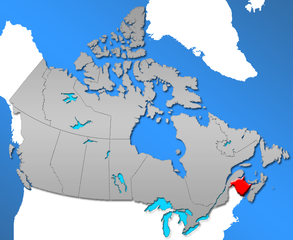 On May 5, the third session of the 58th Legislative Assembly of New Brunswick, Canada adjourned, passing legislation lowering the political contribution limit to $3,000 from $6,000.
On May 5, the third session of the 58th Legislative Assembly of New Brunswick, Canada adjourned, passing legislation lowering the political contribution limit to $3,000 from $6,000.
Additionally, the Local Governance Act and the Community Planning Act were enacted, replacing the Municipalities Act and an older Community Planning Act.
The Legislative Assembly is scheduled to reconvene on Tuesday, October 24, 2017.
May 18, 2016 •
Montana Political Contribution Limits Found Unconstitutional
On May 17, U.S. District Judge Charles Lovell ruled the current statutory campaign finance contribution limits in Montana unconstitutional. “Defendants have not proven that the campaign contribution limits … further the important state interest of combating quid pro quo corruption […]
 On May 17, U.S. District Judge Charles Lovell ruled the current statutory campaign finance contribution limits in Montana unconstitutional. “Defendants have not proven that the campaign contribution limits … further the important state interest of combating quid pro quo corruption or its appearance,” Lovell wrote in the court’s order.
On May 17, U.S. District Judge Charles Lovell ruled the current statutory campaign finance contribution limits in Montana unconstitutional. “Defendants have not proven that the campaign contribution limits … further the important state interest of combating quid pro quo corruption or its appearance,” Lovell wrote in the court’s order.
Montana Commissioner of Political Practices Jonathan Motl said the ruling reinstates the contribution limits in place before the statute was enacted. Those contribution limits have been adjusted for inflation and are now $1,990 for governor and lieutenant governor; $990 for other statewide offices; $530 for District Court judge, Public Service Commission, and state Senate; and $330 for all other elected offices, including the state House. The limits are per candidate per election.
Attorney Matthew Monforton said the court’s ruling should mean there are no caps on contributions from any source” and will consider additional litigation if Motl doesn’t lift all limits, according to the Independent Record.
The statute struck down by Lovell in Lair v. Motl was enacted by an initiative vote in 1994.
May 27, 2015 •
Montana Contribution Limits to Be Tested Again
On May 26, the U.S. Court of Appeals for the Ninth Circuit reversed a lower court’s ruling in Lair v. Bullock. The lower court concluded Montana’s political contribution limits were unconstitutionally low. The appellate court found the lower district court […]
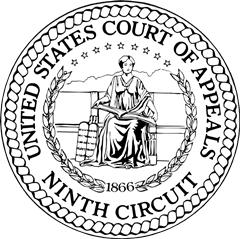 On May 26, the U.S. Court of Appeals for the Ninth Circuit reversed a lower court’s ruling in Lair v. Bullock. The lower court concluded Montana’s political contribution limits were unconstitutionally low. The appellate court found the lower district court applied the wrong legal standard prior to permanently enjoining the enforcement of Montana’s restrictions on campaign contributions by individuals, political action committees, and political parties.
On May 26, the U.S. Court of Appeals for the Ninth Circuit reversed a lower court’s ruling in Lair v. Bullock. The lower court concluded Montana’s political contribution limits were unconstitutionally low. The appellate court found the lower district court applied the wrong legal standard prior to permanently enjoining the enforcement of Montana’s restrictions on campaign contributions by individuals, political action committees, and political parties.
The case was remanded back to the district court to allow Montana’s political contribution limits to be tested under the new and more restrictive standard of Citizens United v. FEC. This new standard, the court stated, means, “The prevention of quid pro quo corruption, or its appearance, is the only sufficiently important state interest to justify limits on campaign contributions. Before Citizens United, it was enough to show the state’s interest was simply to prevent the influence contributors of large sums have on politicians, or the appearance of such influence. No longer so.”
Commissioner of Political Practices Jonathon Motl said he was confident the limits will be sustained, according to the Missoulian.
April 24, 2015 •
Oklahoma Ethics Commission Increases Individual Contribution Limit
At its April meeting, the Oklahoma Ethics Commission increased the maximum individual contribution limit for the 2016 election cycle to $2,700. The increase is the first mandatory increase approved by the commission since its new rules were adopted in 2014; […]

At its April meeting, the Oklahoma Ethics Commission increased the maximum individual contribution limit for the 2016 election cycle to $2,700.
The increase is the first mandatory increase approved by the commission since its new rules were adopted in 2014; the individual contribution limits will be adjusted automatically in conjunction with the consumer price index.
The new limit is currently in effect and will apply to all 2015 special elections.
November 18, 2014 •
No Changes Made to Campaign Contribution Limits in Akron
On Monday, the Akron City Council rules committee voted to wait to make changes to the city’s campaign contribution limits. Council President Gary Moneypenny’s proposal would have increased the limits for mayoral and council candidates by $100. Former Councilman Warner […]
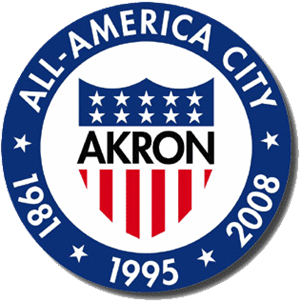 On Monday, the Akron City Council rules committee voted to wait to make changes to the city’s campaign contribution limits.
On Monday, the Akron City Council rules committee voted to wait to make changes to the city’s campaign contribution limits.
Council President Gary Moneypenny’s proposal would have increased the limits for mayoral and council candidates by $100.
Former Councilman Warner Mendenhall, who promoted a petition for the original contribution limits in 1998, protested the proposed changes during the afternoon committee meeting.
State and Federal Communications, Inc. provides research and consulting services for government relations professionals on lobbying laws, procurement lobbying laws, political contribution laws in the United States and Canada. Learn more by visiting stateandfed.com.

